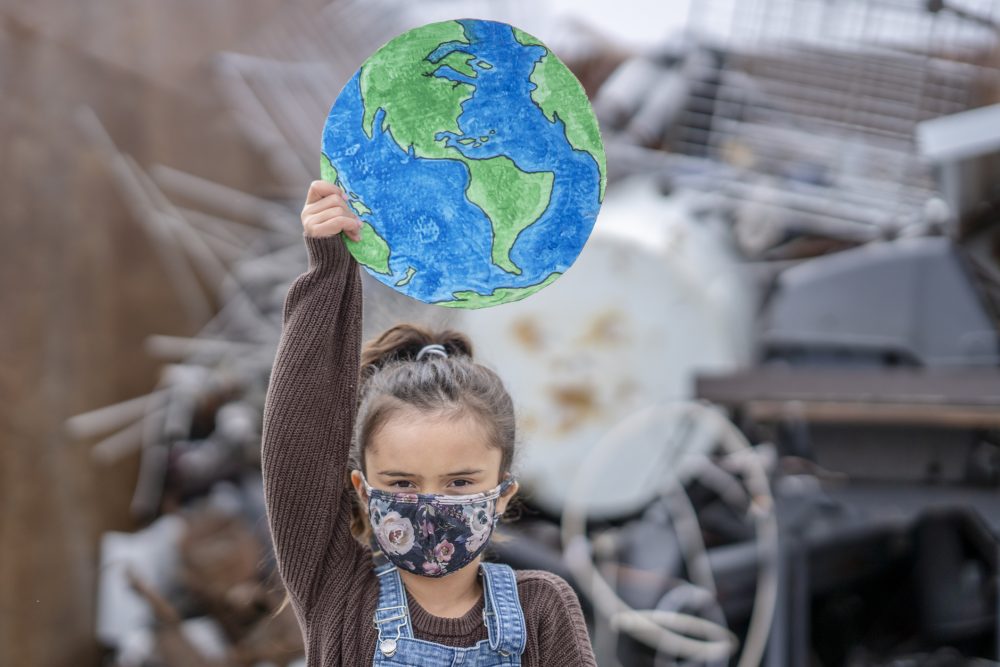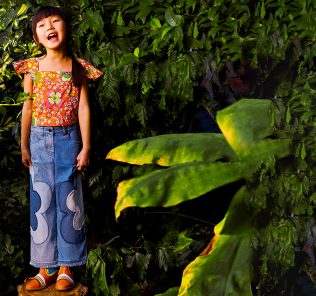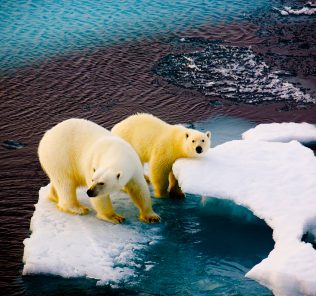*** CONFIRMED *** New ‘Climate Change’ GCSE approved today – but will UAE schools teach it?
Teenagers studying the British curriculum will be able to earn a qualification in issues around climate change, sustainability and conservation in a newly announced and approved Natural History GCSE exam, which has today been given the green light to launch from 2025.
https://youtu.be/lZjbog81uuU
The groundbreaking new qualification, developed and promoted by exam board OCR, will enable students between 14 and 16 to nurture a rigorous understanding of the natural world: from their own local wildlife, environment and ecosystem to critical global challenges such as climate change, biodiversity and sustainability.
Hailed as ‘the most exciting thing to happen in education in the last 30 years’ the move is the culmination of a decade-long campaign led by naturalist Mary Colwell, with support from leading environmentalists such as the Eden Project’s Sir Tim Smit, broadcaster Baroness Floella Benjamin and teenage conservationist Kabir Kaul.
As scientists report increasingly desperate findings about the climate crisis and the state of our planet, environmentalists hope that the Natural History GCSE will help inform and raise future campaigners to safeguard our world.
But the question on UAE parents’ and students’ lips is: will any UAE schools actually teach this new GCSE? The UAE is committed to sustainability goals and hosts schools that are grounded in environmental values, such as Fairgreen International School in Sustainable City – but Fairgreen is an IB-curriculum school.
Although the majority of schools in Dubai use the British curriculum, they usually only teach a very limited proportion of the 53 GCSE subjects that are currently available – including diverse topics such as Astronomy, which as far as we know has never been taught by any UAE schools. Although many of the available GCSE subjects are languages, to date no UAE school has ever taught all of the 31 core GCSEs at one time.
See a full list of all 53 GCSE subjects your child could choose to study.
Is a GCSE in Natural History too obscure to capture the imagination of students and create a demand that UAE schools have to listen to? Or has it been introduced at exactly the right moment – at a tipping point when the environment and climate crisis have become so pervasive, relevant and serious that they can no longer be ignored? Is a qualification related to climate science the most forward-thinking, useful and employable kind of experience that our teenagers should be seeking to gain, and something UAE parents should start campaigning their children’s schools for now?
Why this new GCSE is so important
The UK government Secretary of State for Education Nadhim Zahawi is announcing the new GCSE as part of the UK Department for Education’s flagship sustainability and climate change strategy,being launched at the Natural History Museum in London today (21 April 2022). As the first completely new GCSE since the launch of the new, reformed GCSE qualification framework established in 2017, this qualification is significant for many reasons, and its introduction has been a passion project for many eminent environmentalists.
OCR chief executive, Jill Duffy, said:
“This GCSE is a wonderful opportunity for young people everywhere – from urban to rural environments – to study and connect with wildlife and the natural world. Deeper engagement with biodiversity and sustainability will equip generations of young people to understand their environment and grapple with critical challenges.”
Tim Oates CBE, who leads Assessment Research & Development at Cambridge University Press & Assessment, said:
“As climate change threatens our way of life, the education system must respond. A forward-thinking curriculum cannot remain static in a rapidly changing world. This is a visionary decision by Ministers. It shows how national qualifications can support vital social and economic priorities around sustainability.”
Environmentalist Mary Colwell said:
“A GCSE in Natural History could be a game-changer for the nature of Britain. Everyone will have the opportunity to be nature-literate, to learn about British wildlife and how it relates to the rest of the world, which is essential for a sustainable, green future.”
Eden Project co-founder Sir Tim Smit said:
“This decision is one of the most exciting things that has happened in education in the last thirty years. Seeing the world through the lens of the natural world will transform our wider understanding and empathy for the interconnection between all living things.”
The Urban Birder David Lindo said:
“A lifetime’s dream has finally come to fruition. Hopefully, our future leaders will now have a more balanced view on how to keep the world safe for us all.”
Dr Doug Gurr, director of the UK’s Natural History Museum, said:
“Drawing on the Museum’s vast experience, we know that once young people are inspired to engage with the world around them, they are far more likely to want to protect it. A Natural History GCSE is a huge step in helping to harness the passion young people across the UK are demonstrating for the natural world and in creating advocates for the planet.”
Conservationist and wildlife writer Kabir Kaul, aged 16, said:
“In a time where we face climate and ecological crises, and rising eco-anxiety in young people, a Natural History GCSE will give my generation the knowledge and practical skills they need to value and protect the environment around them. I am hopeful and optimistic it will give many of them the confidence to make a difference for the natural world for decades to come.”
Professor Phil Manning, Chair of Natural History at the University of Manchester, said:
“The natural world consists of a rich language that if properly taught and understood has the ability to save the planet for future generations. The GCSE in Natural History is a major step towards a sustainable planet, with schools becoming hubs for student ambassadors. There is still hope for the future when knowledge and understanding of our planet is spread far and wide.”
Field Studies Council chief executive, Mark Castle, said:
“This decision marks an extraordinary moment for the future of environmental education in schools. It will give young people the opportunity to develop the skills, knowledge and passion that will enable them to help build a more sustainable future for themselves and others. With a much broader input from science, humanities and the arts it will allow them to connect and engage with the natural world in so many different ways.”
Suzanne Moss, Head of Education and Learning at the RHS, said:
“The approval of a Natural History GCSE is a major step forward in environmental education. When people understand the world around them they are much more likely to want to, and to be able to protect it. We are delighted that this diverse and inclusive programme considers a wide range of environments, from rural, to urban, to cultivated and will link more learners with the possibilities of the plant world. It will open up new avenues for young people in their careers and support the protection of the planet at an individual and organisational level.”
Baroness Floella Benjamin said:
“To understand the plight of our planet and how to rescue it is vital. So young people need to study natural history as early as possible in-depth, so that they can take GCSE exams and be equipped to save the world from catastrophe.”
To find out more about the new GCSE in National History, visit the OCR exam board website.
Read about how UAE families can make a difference in sustainability now, with 14 simple ways to help save the planet.
© SchoolsCompared.com. 2022. All rights reserved.





























































Leave a Response